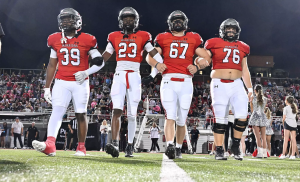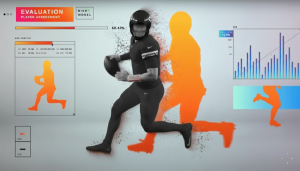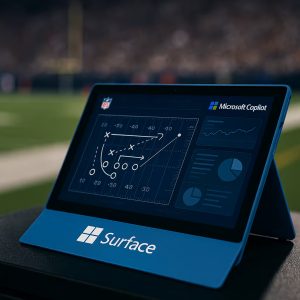If there’s one thing I’ve learned over the past few years, it’s that there’s an incredible amount of data out there. Sleep, recovery, nutrition, performance – but it’s scattered across different apps and devices, making it tough to see the full picture when everything’s split apart.
It got to the point where I noticed it in my own life, on my Garmin app about my sleep app, my workout log, my scale, my daily habits, and my overall schedule. There are so many different data sources, none of them truly connected. I wanted to start linking directly to the APIs and build a system that could bring everything together.
The first step was connecting to Garmin. Not just using their platform, but integrating it into my own holistic setup that could also tie in hydration data, scale readings, and sleep insights.
That’s kind of the mindset I’ve been in lately with Recon Sports, not just building tools for athletes and coaches, but really understanding how those tools fit into real people’s lives.
Recently, we hit a pretty exciting milestone: Recon Sports was accepted into Garmin’s API development program. This means we can start pulling in performance and health data from Garmin devices directly into our system.
It’s one piece of a much bigger puzzle and a step toward connecting everything together so we can eventually see the full picture. It’s a step forward in making our system flow the way real performance tracking should: simple, smart, and connected.
The Purpose Behind the Project
So, why bother with all this integration work? Why spend hours syncing, testing, troubleshooting, and geeking out over data points?
Two reasons.
1. To Walk in the Coaches’ Shoes
I want to understand what it feels like to be the people we’re building for: the coaches, trainers, and athletes who live in this stuff every day.
When they complete a workout session, analyze recovery, or track their teams’ data, what’s that experience actually like? Where’s the friction? What’s satisfying, what’s confusing, what just plain doesn’t work?
I could sit behind a dashboard and make guesses, or I could live it. So that’s exactly what I’m doing.
By pulling in data from my own Garmin device, linking it to other data sources, and using Recon Sports like a normal user would, I get to feel every bump in the road. And that’s the kind of insight you can’t just perceive without experiencing yourself!
2. To Track My Own Health and Growth
The second reason is a little more personal.
I want to understand how my recovery, sleep, and body weight all tie into overall performance, not just in training, but in life as part of my own effort to create a holistic tracking system.
When you’re juggling multiple projects, travel, and the constant chase for excellence, it’s easy to ignore the basics. But lately, I’ve been paying closer attention. Seeing how a bad night’s sleep affects my focus. How recovery time (or the lack thereof) changes how I show up the next day.
With Garmin’s ecosystem as the starting point, I’ll also be able to pull in outside data from hydration tests, digital scales, sleep tracking apps, and other connected tools, providing a more complete view of performance and recovery.
All of it feeds into that same goal: to experience what it’s really like managing different data sources, seeing how they overlap, and turning that information into something actionable. This isn’t just about tracking but learning how all those pieces influence one another in real time.
Not perfection right away, but just progress towards it!
Making the Experience More Human
When I talk about using data, I don’t mean getting lost in numbers. I mean, using them as mirrors.
A mirror doesn’t tell you what to do; it just shows you what’s real and what’s in front of you.
That’s how I look at metrics now. They’re not a grade, they’re feedback. They tell you what your body’s been trying to say all along, but in a way you can’t ignore.
For instance, when I’m sleeping well and staying consistent, I don’t even need the app to remind me that I’m doing better. I feel it. But when I’ve been running on fumes, the numbers don’t lie! They give me that nudge to slow down, reset, and start paying attention again.
That’s the mindset I wanted to bring into Recon Sports, i.e., a platform that not only collects data but also helps people understand themselves through it.
The goal isn’t to build something that feels like tech, but to build something that feels human.
The Beta Phase
At the moment, we’re testing things out with a small group from our own team at Recon.
It is an in-house project, allowing us to collaborate and test together. It’s a chance to see how this kind of integration can help us better support our current clients and maybe even open the door for others to get involved later. The plan includes gathering feedback, identifying and fixing issues, learning from the process, and then repeating the cycle.
It’s early, but the energy around it feels good. Everyone testing it so far has the same curiosity: What happens when we actually see the full picture of our performance and wellbeing in one place?
This isn’t just about fitness tracking. It’s also about creating awareness and understanding how our daily habits, including what we do, how we sleep, what we eat, and how we recover, all interconnect.
Learning by Living It
I’ve always believed that you can’t build something great for others unless you understand it personally. And this journey with Garmin’s integration is teaching me exactly that.
When I understand what it feels like to track, sync, struggle, and improve, I can make my tech better for every coach and athlete who uses it.
And when I understand how my own recovery and well-being affect my work, I become better at leading this whole thing forward.
What Comes Next
We’re just getting started with this. There’s still a lot to test, a lot to learn, and probably a lot to break. But that’s part of the fun.
I’m not trying to reinvent the idea of data tracking, just to make it more meaningful. More personal. More real.
If this small test goes well, we’ll expand it, refine it, and hopefully bring something to the Recon community that makes tracking performance feel less like a chore and more like a conversation between your data, your coach, and yourself.
I’m definitely excited about the Garmin integration. But what also really matters is what it stands for; less about the tech itself and more about what it allows. It’s a chance to build tools that actually make sense for people. Tools that help us see the full picture of how we train, rest, and live.
At the end of the day, this isn’t just about tracking more numbers.
It’s about noticing patterns: connecting the dots between effort and recovery, between how we move and how we feel!



